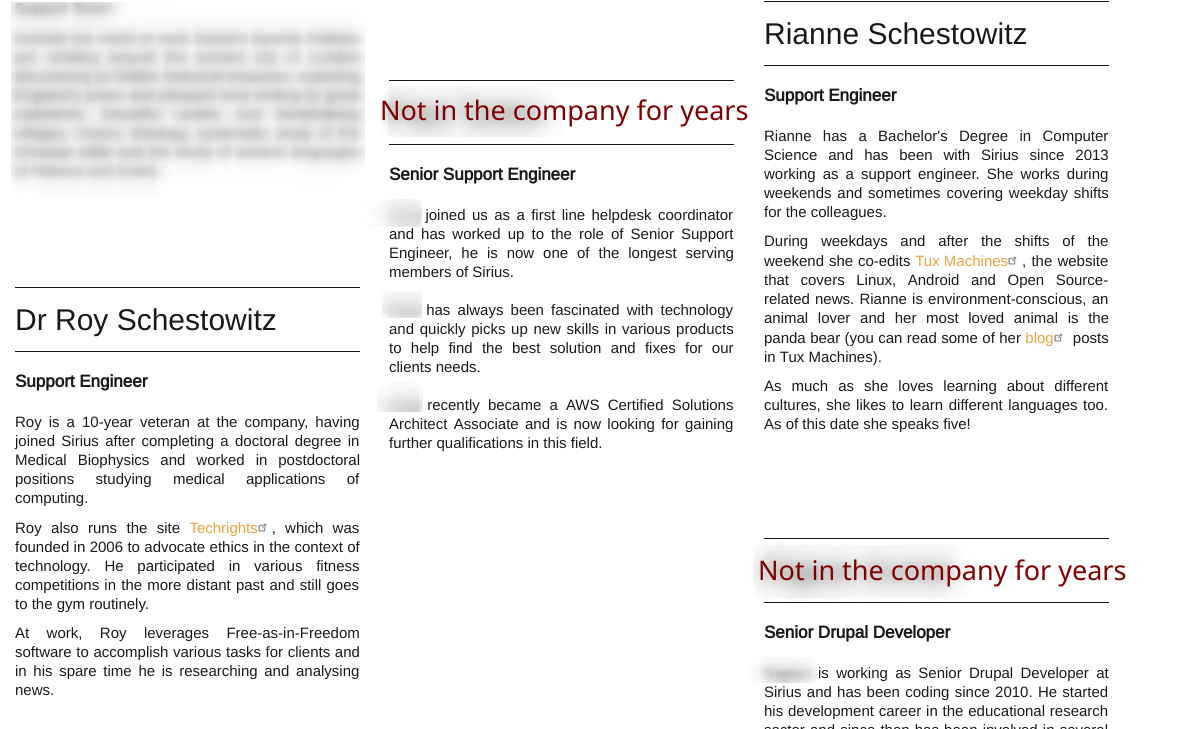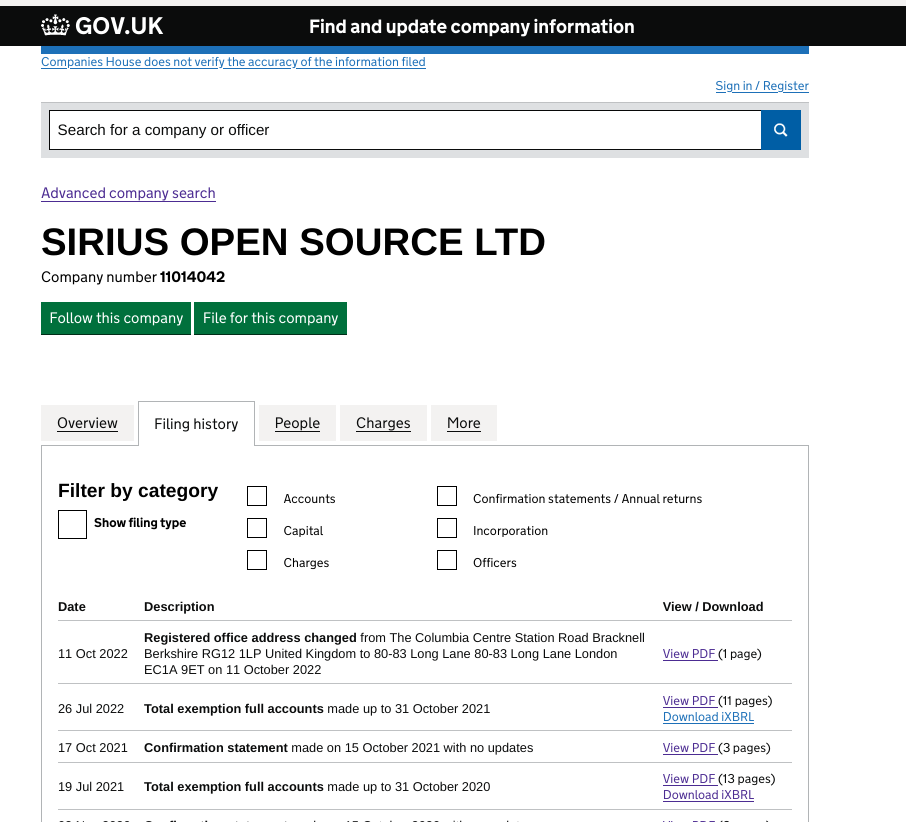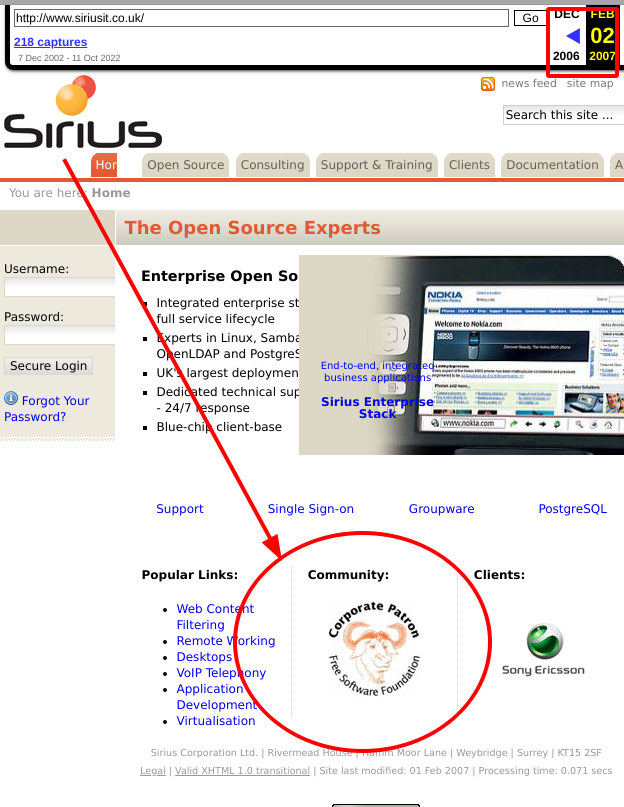
Summary: The company where I’ve worked since my twenties is going under; now it’s trying to find excuses to deny compensation to staff while failing to pay very basic bills and liabilities; there are many other issues that deserve the light of day
SO IT finally happened. I’m liberated. Liberated to speak out and liberated to work around the clock as best suits me.
So what exactly happened? My employer is going under, and in my informed assessment it is going under partly due to its own incompetence. It’s basically its own fault. I did what I could to prevent it. I spent years cautioning against decisions that would make staff recruitment — and retention — very difficult. I even studied documents and laws, hoping to make a case for my stances/positions. But they would not listen. The managers put in charge were clueless; heck, “clueless” is an understatement.
The way things stand at the moment, the employer is too broke to pay the salaries or pay compensation in case of staff cuts. We know that. We can see the statements from the company; its finances make it quite a miracle that it’s still running at all, based perhaps on prospects of netting some very major client in the imminent future. But that won’t happen. In fact, the staff still left in the company is incapable of dealing with major clients; lies and cover-up from management won’t keep such clients around; no major client would fall for it. ‘Our’ company cannot even find someone skilled at GNU mailman and ninja-style management with “tweets” instead of job advertisements are a symptom or a hallmark of severe weaknesses.
The company was trying to convince people to leave voluntarily (it’s all on record) while treating people poorly, in effect treating them as disposables. To quote an E-mail that my wife Rianne sent to the “Office Manager” earlier this year (failing to do the most basic job!):
Hi ———-,
The same issue (as before) is happening again and I’m really baffled as to why the same mistake would keep repeating itself over and over again. I guess I deserve to have an explanation regarding this matter, because if the NOC shifts wiki page is the only source or basis for your accounting, why can’t you count the number of shifts correctly? I’m starting to look at it as if you are neglecting your responsibility. I have had 13 shifts in total for the month of February, 8 were regular shifts and 5 more are the extra shifts. I got paid for the regular shifts but not for the additional shifts. If you could add the additional shifts to my account, I would be grateful.
Best,
Of course it fell on deaf ears, as usual.
We might do a separate series about Gates Foundation and its sneaky moves, apparently trying to sneak in a bribe at a very critical time (as if it needed a British company to do a simple task thousands of American firms can do). That merits a lot more discussion.
As later posts will explain (in greater depth), the company I joined almost 12 years ago was very, very different. It was run by knowledgeable and compassionate people; not the company run by reviled, unqualified and demotivational people (since 2018 or thereabouts).
So why not leave earlier? Well, a pandemic is not a good time to seek alternative employment, especially when already working from home (many advantages during lock-downs and a lingering epidemic-turned-pandemic), though times are now changing and the clock is ticking. The company is simply running out of time and sinking deeper and deeper into debt (the ‘overdraft’ is like $100,000 per permanent member of staff).
It is important for me to state upfront and very frankly that the company I leave is not the company I joined. I worked alongside some very skilled individuals in 2011 and now it’s just a drag. Turning the job into “bullshit job” is the legacy of years of failing managerial style. It’s akin to the way this blog post described it a few weeks ago: “This was my introduction to busy work: work to be done for no other reason than to keep yourself looking busy. It fits into a larger category of bullshit work: work that the worker must do despite having no purpose.”
That’s basically what much of the job became. From supporting and advancing Free software it turned into using proprietary “clown” disservices to help other companies run their proprietary “clown” disservices. Sometimes not even for a profit but a loss! Yes, imagine taking clients onboard only to lose money on them! That happened again very recently and it was not the first time bosses decided to underwrite, in effect undercharging, just to get a “client”. About 8 years ago, at the instructions of the boss, I tried to get the client to pay for the time we spent; eventually the company was so frustrated with the contacts that it tried to block them from moving to another provider (or to hold the work ‘hostage’), using technical means. What an embarrassment.
Those proprietary “clown” disservices aside, imagine stuff like Microsoft/Azure and various proxies of Microsoft, for whom we were meant to act like clerical staff, reading from scripts and then writing into GUIs (for staff to relay), in essence cheapening the workforce and wrongly assigning roles/tasks — all this in a pathetic pursuit of business. Not to mention several unethical clients, which won’t be named as the rants aren’t about any particular company except the one I know best (it is unfair to pick on pertinent clients as it’s not about them).
Having said that, here’s a recent example, which intentionally omits any names; some months ago the company’s founder asked me to look into Web/Apache logs of some ‘Christian’ fundamentalist (anti-abortion) site, trying to reaffirm it had come under DDOS attack (barely!) after Roe getting overturned. Well, at that point I knew already it was time to leave. I think it was around March that the decision had been finalised, at least in my mind. The issue isn’t a monetary one; it’s just that we don’t filter potential clients, we’re even desperate to get some that yield losses rather than profit, or don’t involve any actual projects. If there’s no filtering, you risk letting staff do unethical stuff in a company that has “Open Source” in its name; in the above example, the supposedly ‘Christian’ fundamentalists were trying to demonise those “Evil” and “Extreme” people who support a woman’s right to choose whether to bear a child. Why would I want to help them? No way!
There were other unethical clients (one was even a loan shark) and highly unprofitable contracts that ended up losing the company 4 times more than the actual revenue. Imagine working for a desperate company that’s under-selling itself, telling the staff to study stuff like Kafka (in a hurry) just to claim to potential clients that we possess such skills as if a few days messing about with some software is the same as proper experience. This was about getting business based on false claims of skills possessed by the workforce.
Looking at the current staff page, it’s fair to say that half or perhaps a majority of those listed aren’t in fact in the company. Some left about 3 years ago. They’re in no way associated with the company:

In terms of communications, an abyss widened too. Replies weren’t being sent (or selectively sent), not even a reply to message about aggressive cancer of a loved one (little sympathy is a sign of sociopathy) in addition to lying about not receiving important E-mail. Sometimes clients would not receive replies for months; it was a failure at the very top! More recently, we witnessed a manager probably lying about a client making a complaint (I could ask the client directly to prove this too was a lie, but it’s not fair to the client) and misrepresenting/distorting what I actually said. Suffice to say, pointing out a lie or a pattern of lying is not the offense; the offence, or even repeated offence, is repeatedly lying to people. In the business context, lying has financial and sometimes legal consequences. When I actually said flattering things about a client, without any names, that was used against me. How dare I praise someone? When attempting to weaponise anything against someone, even flattery is used negatively.
Lies often go hand in hand with cover-up, so of course an inappropriate romantic relationship was becoming a taboo; you cannot even ask, “is there a relationship or not?” That in itself is considered a problem, but not the nepotism. In fact, pointing out a potential conflict of interest (that is rather obvious to everyone inside the company) is not abusive, it’s the relationship itself, which doesn’t predate the hiring, that seems inappropriate to say the least.
Of course spending all day spying on staff (activity outside of work) instead of actually running the company is also not a sanctionable offence. There are some rules that are only applicable to those who aren’t enforcing them.
A rush to finger-point is instinctive and convenient; it’s not unprecedented, either. A professional company with a thick enough skin would ask questions first; they should be “chilling” and finding composure again (maybe get a lawyer, ask for an actual lawful action; it’s harder to mess about when instructed based on legal grounds).
But “I suspect there is no involvement of HR here,” one person advised me, as “they don’t have money or they don’t have HR as they would find out it’s just a fishing venture or expedition” (causing embarrassment to the company, obsessing over chats where there’s no actual damage done, except ‘damage’ to one man’s ego).
I’ve had enough. This message was sent today:







 Filed under:
Filed under: 






 The document does not infringe privacy. Roy has extensive experience writing about privacy-sensitive issues, including whistle-blowers, so names of clients and colleagues will not be mentioned (even excessively redacted in some cases). Evidence, where ample paper space is needed, won’t be shared unless demanded. All statements herein are backed by verifiable material and all evidence is readily available upon demand. Do not assume anything here constitutes mere gossip (we reject weak levels of evidence like hearsay) and provided that all statements are true and any inaccuracies may be unintentional, nothing provided in this text could be defamatory.
The document does not infringe privacy. Roy has extensive experience writing about privacy-sensitive issues, including whistle-blowers, so names of clients and colleagues will not be mentioned (even excessively redacted in some cases). Evidence, where ample paper space is needed, won’t be shared unless demanded. All statements herein are backed by verifiable material and all evidence is readily available upon demand. Do not assume anything here constitutes mere gossip (we reject weak levels of evidence like hearsay) and provided that all statements are true and any inaccuracies may be unintentional, nothing provided in this text could be defamatory. The main subject of this document is Sirius, a company registered under several different IDs in the Companies House (depending on the range of years of operation). Currently it is not registered under the same name as it had been registered when Roy and Rianne joined the company. Directors also changed a bit (this typically happens when this company rolls on from one ID to the next). It’s possible to also learn a chain of cliques and friends (possible cases of nepotism and favouritism) by studying connections between and across organisations, e.g. Open Source Consortium. The reasons for the change are not known, leaving us speculating at best. When asked about that in person, the company declined to provide an explanation. Another ‘branch’ of the company is based in the US, i.e. outside the UK and largely unknown to us (e.g. its financial state). This document won’t speculate on these issues and confidential material circulated within the company earlier this year will not be cited (in the interest of confidentiality). Careful attention was paid to confidentiality laws.
The main subject of this document is Sirius, a company registered under several different IDs in the Companies House (depending on the range of years of operation). Currently it is not registered under the same name as it had been registered when Roy and Rianne joined the company. Directors also changed a bit (this typically happens when this company rolls on from one ID to the next). It’s possible to also learn a chain of cliques and friends (possible cases of nepotism and favouritism) by studying connections between and across organisations, e.g. Open Source Consortium. The reasons for the change are not known, leaving us speculating at best. When asked about that in person, the company declined to provide an explanation. Another ‘branch’ of the company is based in the US, i.e. outside the UK and largely unknown to us (e.g. its financial state). This document won’t speculate on these issues and confidential material circulated within the company earlier this year will not be cited (in the interest of confidentiality). Careful attention was paid to confidentiality laws.

